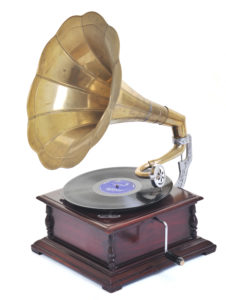You know I share a lot of posts on how to find your voice in your writing. Well, you need to find and have your voice represent you on social media as well.
Identify Your Authentic Social Media Voice
by Edie Melson @EdieMelson
 As authors we talk a lot about voice. In fiction, and even non-fiction, it’s defined as that certain something that makes an author unique. In everything—from the rhythm, cadence and flow—to the sentence structure. It conveys the author’s personality and attitude.
As authors we talk a lot about voice. In fiction, and even non-fiction, it’s defined as that certain something that makes an author unique. In everything—from the rhythm, cadence and flow—to the sentence structure. It conveys the author’s personality and attitude.
Although many may not realize it, there’s an advantage to developing a voice for your social media presence. If you think about it, it’s something that those most successful social media folks have done.
But with social media, it’s not just the words you choose, but it encompasses the images you use to represent yourself and the topics of the updates you post.
Here’s how to develop an authentic social media voice:
- Be yourself. This may seem obvious, but with any new technology, it’s easy to get sidetracked by all the bells and whistles. Don’t over think the hashtags or lingo of any platform.
Read the full post on The Write Conversation!


 I love to go hear other authors speak. What a kick that Pulitzer Prize winner
I love to go hear other authors speak. What a kick that Pulitzer Prize winner  by C.S. Lakin
by C.S. Lakin Think about some of your favorite series – either books or TV shows. Why do you keep going back for more?
Think about some of your favorite series – either books or TV shows. Why do you keep going back for more? 
 by Dawn Field
by Dawn Field  You may have a clear vision for what or who your book is about — but do you know how to tell your story? One of the first major decisions you’ll face as an author is determining the style of narration in your book. Is your story best served by writing in first person, third person, or — if you’re feeling adventurous — second person?
You may have a clear vision for what or who your book is about — but do you know how to tell your story? One of the first major decisions you’ll face as an author is determining the style of narration in your book. Is your story best served by writing in first person, third person, or — if you’re feeling adventurous — second person? Ask any agent or editor what they look for in a manuscript and inevitably they’ll say they’re looking for voice. A strong voice. A unique voice. An original voice. A realistic voice. But how do you ensure you and your main character possess this? That’s the billion-dollar question, isn’t it?
Ask any agent or editor what they look for in a manuscript and inevitably they’ll say they’re looking for voice. A strong voice. A unique voice. An original voice. A realistic voice. But how do you ensure you and your main character possess this? That’s the billion-dollar question, isn’t it?